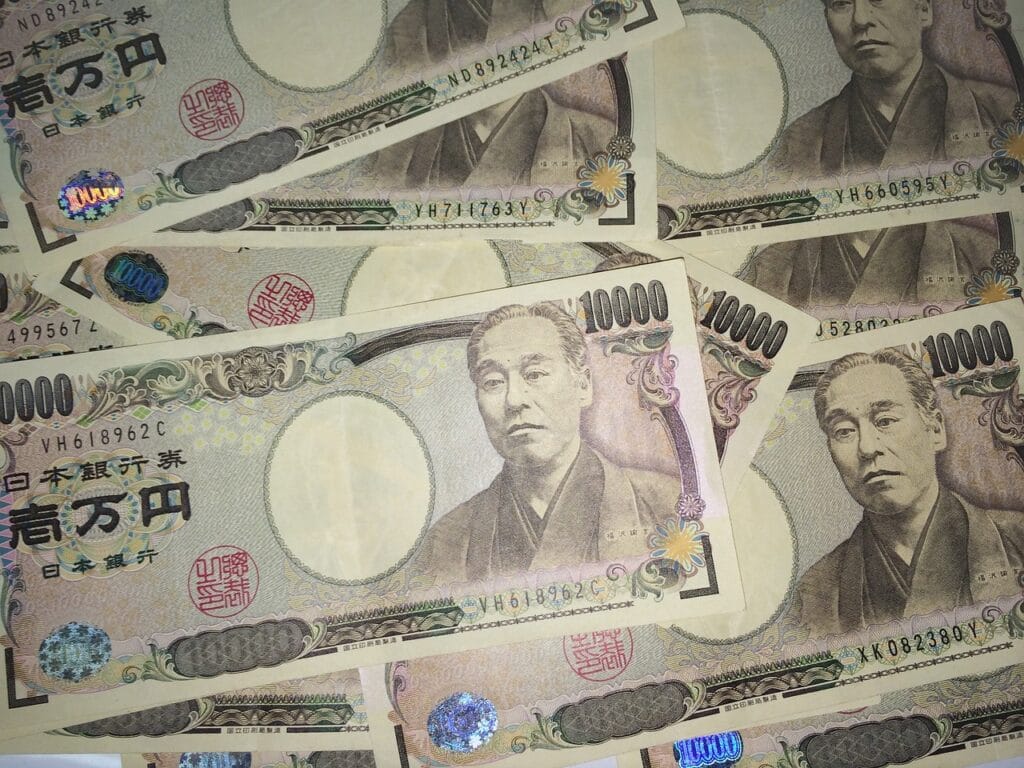There is popular information on the Internet that Japanese women receive their spouse’s salary on their bank card. We decided to check if this is true.
About the Japanese custom, according to which the husband’s salary “for convenience” is immediately transferred to his wife, is often write on various forums, entertaining And information portals, in collections facts about the Land of the Rising Sun. Some even claim, that this state of affairs is enshrined at the legislative level and married Japanese do not have their own bank cards at all. This topic is also popular among social network users (for example, “VKontakte", TikTok, Twitter, "Classmates"), YouTube And blogging platforms.
The statement that husbands’ salaries in Japan are immediately transferred to their wives’ accounts has spread on the RuNet relatively recently. Judging by Google search results, before 2015 there were practically no such messages. The first mention of the unusual rule that “Verified” was able to find was published on March 13, 2015 fast Polina Katsuro, who lived in Japan for many years and even released book about this country. In her LiveJournal, she talks about the institution of marriage in Japan and provides excerpts from conversations with the Japanese themselves and their wives. The blogger claims that in this country “the husband’s salary is traditionally transferred to the wife’s bank card.”
The next mention we found is reportage TV channel "Mir", dedicated to the closing of Japan Week in Moscow in July 2019. The heroine of this story, Maria Grigorieva, who has lived in the Land of the Rising Sun for a long time, says: “Every month on the 25th, my husband’s salary is transferred to my card. This is the standard in Japanese families." Then her Japanese husband confirms that the wife really manages the finances, and he does not need to think about loans or other payments. Maria’s words can be interpreted in two ways: perhaps she meant that the husband, having received his salary, immediately transfers it to his wife, and not his employer directly. However, viewers could understand the heroine’s words differently. However, it was not possible to establish whether this story, an earlier post on LiveJournal, or another publication became the basis for the controversial statement. In any case, it became popular only in 2022.
At the same time, the opinion that Japanese wives receive their husbands’ salaries at their own expense is widespread mainly in the Russian-speaking segment of the Internet. In English, users usually ask whether it is true that husbands in Japan themselves give the money they earn to their wives. And this is indeed true for the most part. For example, in 2012 the BBC told stories of several Japanese men who gave almost everything they earned to their wives, leaving only a small portion for pocket money. The article, citing a study by Softbrain Field, stated that this way of life is accepted in 74% of Japanese families.
In 2023, scientists from Germany and Japan published results of a study of this phenomenon. They argue that managing household finances is a traditionally female role in Japan, which is why in the 1970s, 97% of urban Japanese women and 66% of rural women in the country managed their husbands' salaries, giving them small amounts - okozukai - for personal expenses. By 2019, the share of families adhering to this tradition has noticeably decreased, but is still more than 50%.

Journalists The Japan Times talked about this system in detail in a 2011 article. In addition to the concept of okozukai, in Japan there is hesokuri - this is money that a wife hides from her husband (either for a rainy day or for personal expenses). The article states that "the civil code prohibits joint bank accounts, so housewives who do not have their own income are usually forced to take household expenses from their husband's account." Moreover, “if the husband earns money, this money always belongs to him,” and hesokuri can even be interpreted as theft.
Blogger Marina Chizhova She lived in Japan for 20 years and published two books about this country. In one of them - “Japan from the inside“- she writes that among the Japanese, it is indeed customary to give the entire salary to the wife, leaving only a small part for small expenses, but the employer simply cannot transfer money to the account of his employee’s wife, since this affects tax issues. And this is logical, because if the wife actually receives the money right away, the question arises: who should pay taxes: the person who earned it but did not receive it, or the one who actually received it, but from the point of view of the employment contract has no relation to it?
He shares the same impressions ToriChyanChannel is a blogger who talks about life in Japan on YouTube. She moved there from Ukraine 11 years ago and married a Japanese man. In one of his videos, the blogger, like Chizhova, refutes statement that the husband's salary goes to the wife's account. However, according to her, often the husband’s card is actually physically with the wife, but the men give it away voluntarily, so as not to take on the responsibility of managing the budget.
Thus, the very first mentions of the fact that in Japan the husband’s salary goes to his wife’s card appeared in the stories of Russian-speaking Internet users who moved there and, according to them, encountered this custom. However, this statement is refuted by articles in the Japanese media and stories of other people who have lived in this country for a long time. Therefore, we can conclude that in Japan, as in Russia, the salary goes to the card of the person who is officially employed in the company, and not at all to his wife or anyone else. However, traditionally in Japan, wives were in charge of the family budget, so many men there actually give the money they earn to their spouses, leaving only small amounts for pocket money. Perhaps some of those who came to Japan and encountered this tradition misinterpreted its essence, deciding that it was not the husband who transferred the salary to the wife’s card, but directly his employer.
Cover photo: pexels.com
Read on the topic:
- Is it true that Hong Kong law allows a woman to kill her husband who cheated on her?
- Is it true that tutoring has been banned in China?
- Is it true that the practice of the “Swedish family” is widespread in Sweden?
If you find a spelling or grammatical error, please let us know by highlighting the error text and clicking Ctrl+Enter.






